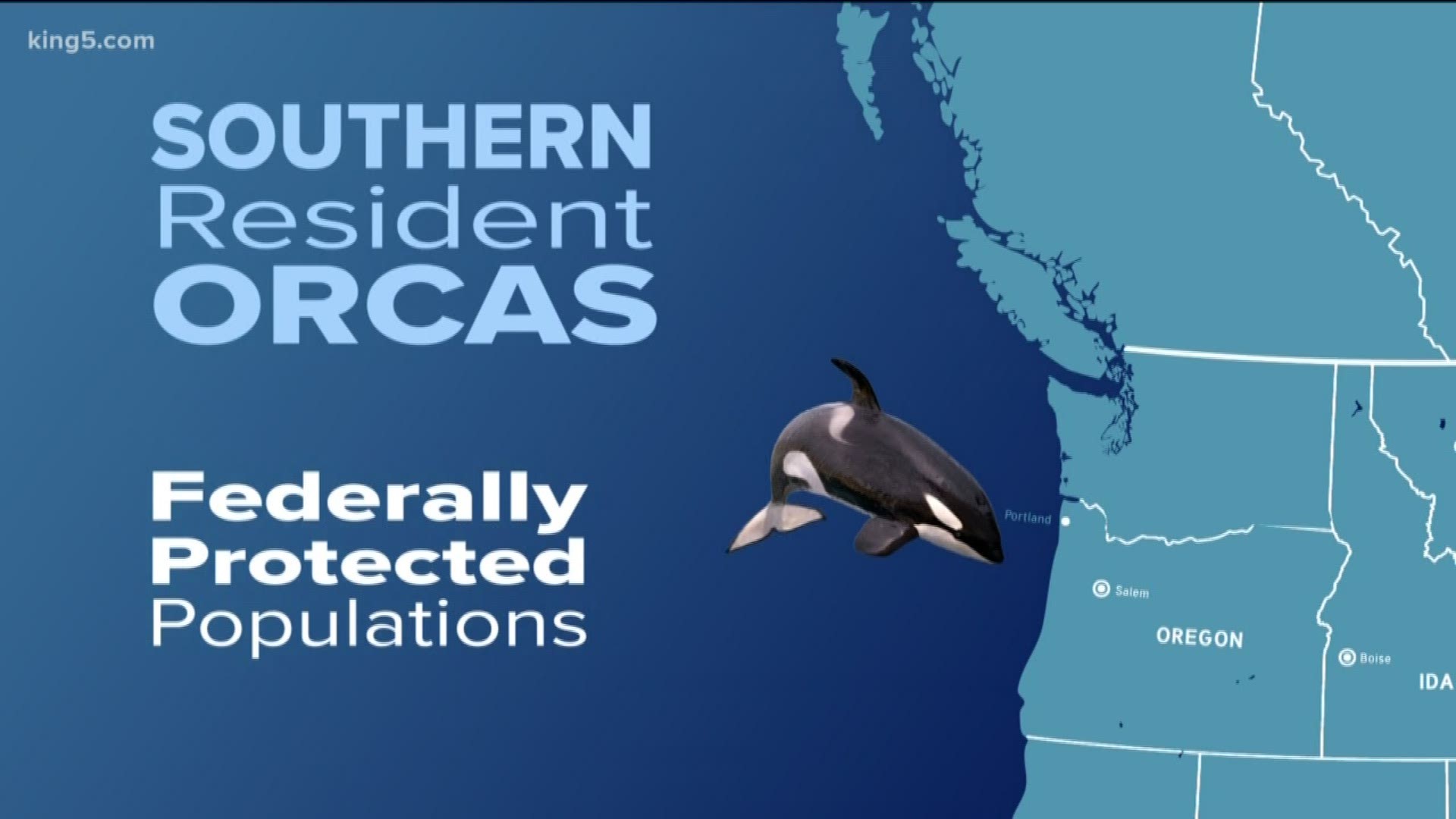Cutting Chinook salmon out of your diet won’t save the Southern Resident orca population, but there are everyday habits we can change that could make a difference for the endangered mammals.
That isn’t to say that what a local chef is doing by taking chinook off the menu is a waste. It further raises awareness of what the dwindling orca population faces as they struggle for survival, according to National Oceanic and Atmospheric Administration spokesperson Michael Milstein.
RELATED | Scientists deliver salmon to ailing orca
After all, orcas and Chinook salmon are closely tied.
Chinook salmon are considered delicious and healthy. They are rich in fatty acids and highly valuable in terms of nutrition for orcas along the West Coast, including Southern Resident killer whales who primarily reside within the Georgia Basin-Puget Sound region.
But as Southern Resident killer whales fight for survival, so do the salmon.
There are several factors at play, the biggest being the loss of habitat, Milstein said. The streams and rivers that salmon rely on for spawning are becoming less habitable. Dams and culverts are cutting off access to traditional spawning grounds. And changes to our climate are making it more difficult to survive.
Chinook are declining across both the Salish Sea and Columbia River basins, according to the Environmental Protection Agency. Meanwhile, so are Southern Resident orcas, with declining salmon stocks being a factor.
There were 98 Southern Resident orcas in 1995. As of mid-June, there were 75 left, according to the Orca Network. No known calf has been born since 2015, which is why the death of J35 received so much attention – and why so much effort has been spent on helping J50 recover. Reproductive females are also dying off.
Not eating salmon, however, will likely not change anything for the struggling orcas.
As Milstein points out, fishing is already regulated. The salmon you see in stores is there because it was determined stocks are healthy enough, to begin with. Some may also argue that buying salmon is good because that supports the fishing industry – a big advocate for salmon recovery.
The real challenge is increasing salmon stocks in the long run.
“It’s less about who gets a piece of the pie than it is about increasing the size of the pie so that there is enough for all,” Milstein said.
That means improving salmon habitat, especially around Puget Sound. It’s work the state has already begun – culvert replacement, for example. But there is also a long way to go.
But that doesn’t mean we should give up. Puget Sound-area residents can make immediate adjustments to their lives that would benefit orcas. That includes:
- Reducing noise and other disturbances while boating
- Eat sustainably-harvested salmon
- Dispose of unused medicine and chemicals properly
Meanwhile, the state's Southern Resident Killer Whale Task Force continues to look at solutions to prevent further decline in the orca population before it is too late.
"We've got a body here who is tasked with that responsibility to, by the governor, and he's told them to put dam breaching on the table. And if they don't take it seriously, then that may be the end of it," Jim Waddel, a former civil engineer with the U.S. Army Corps of Engineers, previously said.

